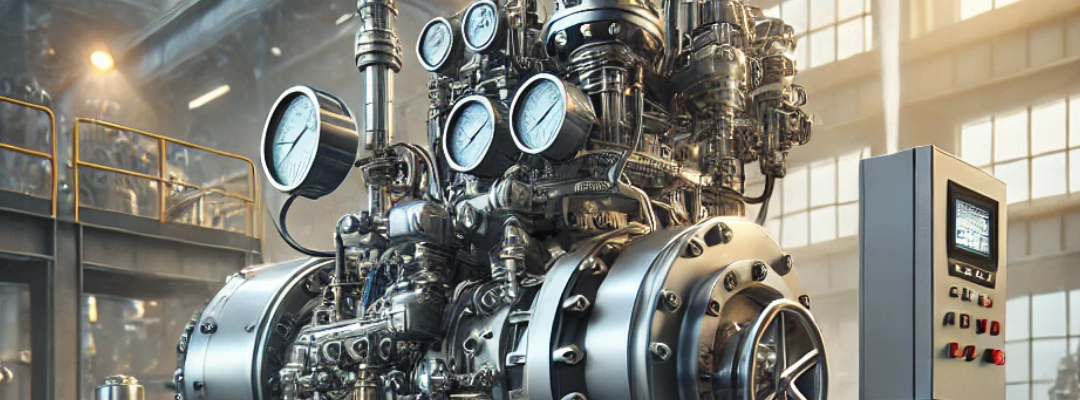High-pressure pumps play a crucial role in various industries by efficiently moving fluids and generating the necessary pressure to power mechanical systems. These pumps are essential for water treatment, industrial cleaning, oil processing, and chemical manufacturing, among other applications.
In this article, we explore how high-pressure pumps work, their types, applications, and why they are indispensable in modern industries.
How High-Pressure Pumps Work
High-pressure pumps are designed to force hydraulic fluids or air through a system, enabling the operation of components like motors, cylinders, and control valves. The movement of the liquid is regulated by valves, ensuring smooth and controlled flow throughout the system.
Hydraulic Circuit Mechanism
High-pressure pumps function within hydraulic circuits, which are categorized into two types:
- Open-Center Circuit: The fluid circulates continuously, reducing the need for high pressure in valve control.
- Closed-Center Circuit: Full pressure is required to regulate valves, making it suitable for high-demand industrial applications.
The fundamental working principle involves the displacement of fluid using a piston mechanism, where the force applied by the pump enables the movement of liquids at high pressure.
Key Features of High-Pressure Pumps:
- Adjustable flow rate for controlled operations
- Automatic shut-off function for efficiency
- Multi-function valves for varied applications
- Pressure monitoring for safety and precision
Industrial Applications of High-Pressure Pumps
High-pressure pumps are designed to generate pressures exceeding 800 psi, with industrial models producing between 3,000 psi and 5,000 psi. Their ability to deliver high-intensity pressure makes them suitable for various demanding applications, including:
Water Supply & Waste Management
- Essential in municipal water treatment and waste disposal systems
- Ensures efficient fluid movement in large-scale plumbing systems
Industrial Cleaning & Pressure Washing
- Used in car washes, pressure cleaning, and sanitation processes
- Removes dirt, grease, and contaminants from industrial surfaces
Chemical & Oil Processing
- Supports chemical transfer, filtration, and oil refining
- Enables high-pressure processing in petroleum industries
Reverse Osmosis & Water Purification
- Plays a key role in desalination and ultra-pure water production
- Helps maintain high-efficiency filtration systems
Food & Beverage Industry
- Used for ingredient mixing, beverage processing, and dairy pasteurization
- Ensures compliance with hygienic and safety standards
Types of High-Pressure Pumps & Their Importance
Depending on the application, various high-pressure pump models are used across industries. Here are the most commonly utilized types:
Centrifugal Pumps
- Primarily used in water treatment plants, food processing, and chemical industries
- Ideal for applications requiring continuous fluid movement
Container Pumps
- Designed for handling hazardous, flammable, and toxic liquids
- Constructed from high-quality stainless steel to resist corrosion
Drum Pumps
- Used for transferring cosmetics, perfumes, food, and chemicals
- Prevents liquid waste, making them ideal for handling expensive materials
Each type of pump is specifically designed to meet unique industry needs, ensuring safe and efficient fluid handling for different applications.
Why High-Pressure Pumps Are Essential
The significance of high-pressure pumps lies in their ability to streamline industrial processes, making fluid transfer faster, more efficient, and highly controlled. Their role in automation and process optimization makes them an indispensable asset in manufacturing, energy, and environmental industries.
- Industrial Reliability: Ensures consistent performance in heavy-duty applications
- Energy Efficiency: Helps reduce operational costs with optimized pressure control
- Safety & Precision: Maintains controlled fluid movement to prevent damage

